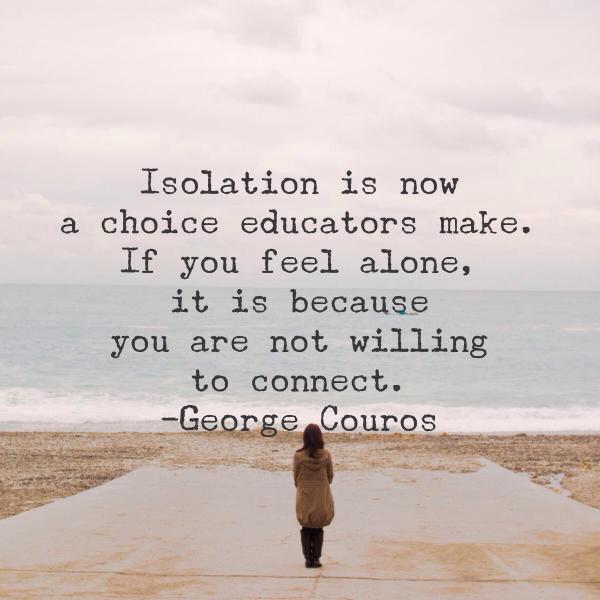Wow. Am I tired.
Wednesday evening I returned home from Chicago, which is only a quick 89 minute train ride south, after four days of geeking out at, "The Epicenter of EdTech," otherwise known as ISTE. It was a phenomenal experience. One that is not going to be wrapped up neatly in a single blog post.
I have some co-workers that poke jabs at me for my love of Twitter. I've been on since 2010 and while my presence has varied over the years I know that it's always a place I can go to learn from others. I have some favorite hashtags and can quickly filter the content I'm most interested in. During rough patches it was a place I was able to go and not feel isolated. In Chapter 3 of, "Shattering the Perfect Teacher Myth," Hogan writes:
When educators join forces, offer support, and hold
each other accountable, we all get better.
Fight isolationism. This might be the most valuable piece of advice that I can provide a new teacher or a teacher who is struggling. Everyone is at a different place in their lives. Family must always come first and we need to nurture those relationships that support and love us. My husband is a great guy and provides amazing support in everything I do but sometimes when I try to talk to him about some aspect of my profession it's not the same as if I was communicating with another teacher. We cannot dismiss ways to connect with like minded professionals. Not everyone can be on after school/before committees but everyone can find ways to eat lunch with a co-worker, engage in small talk in the mail room and learn what others are doing, listen to what students are saying about experiences in other classroom and follow up with that teacher. Twitter might be my preferred way to fight isolationism but it's not the only way.
It's through connections that I feel challenged. I am forced to reflect and as a result I grow. ISTE was not just an amazing learning experience but also energizing. I find my energy in connections and relationships I have built with others.

